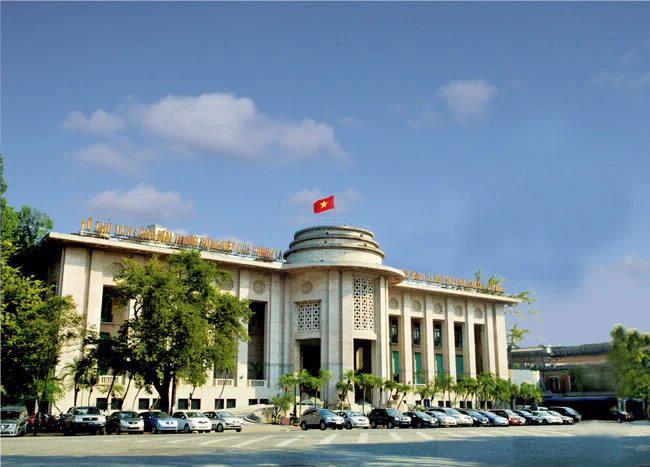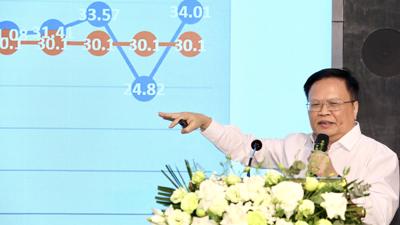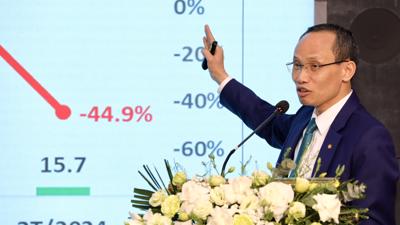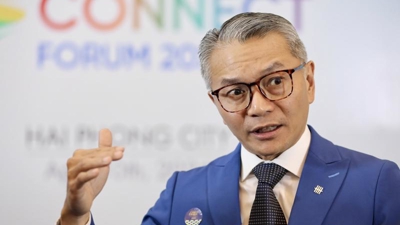SBV Deputy Governor discusses decline in credit activity in Jan-Feb
Decline slower in February than in January, official tells conference chaired by PM.

Speaking at a conference on deploying tasks in monetary policy management, tackling difficulties in production and trade, promoting growth, and stabilizing the macro-economy, chaired by Prime Minister Pham Minh Chinh on March 14, Mr. Dao Minh Tu, First Deputy Governor of the State Bank of Vietnam (SBV), said that due to the temporary effects of the Tet holiday along with the low capital absorption capacity of the economy, credit as of the end of February has declined 0.72 per cent.
However, he added that the rate of decline was 0.05 per cent in February compared to 0.6 per cent in January. With excess liquidity and much space for growth in credit activity, he believes that financial institutions now have favorable conditions to provide extra funding to the economy.
Credit down in most sectors
According to Mr. Tu, credit is declining in almost all sectors of the economy, with the two exceptions being real estate and the stock market, which have increased 0.23 per cent and 2.56 per cent, respectively, since the end of 2023.
Explaining the trend, he pointed to the ongoing instability in the global economy, inflationary pressure, high interest rates in most countries, increasing gold prices, and a growing VND/USD exchange rate.
Due to seasonal factors, when credit demand typically increases sharply towards the end of the year, there are generally difficulties in achieving high credit growth in the first two months of the year.
However, the main factors affecting credit in Vietnam are low demand and capital absorption capacity. Instead of borrowing capital to expand their activities, many businesses are being forced to scale down operations or close down entirely due to factors such as rising inflation, high material and production costs, and low demand.
People increasingly prefer savings and are reducing borrowing for normal expenses. Real estate credit accounts for about 21 per cent of the entire market and so has a substantial effect on the credit level in the economy.
Some customer groups have needs but do not meet the necessary conditions, especially small and medium-sized enterprises (SMEs), due to their small capital scale, limited capacity, and lack of feasible business plans. Solutions to increase credit access through credit guarantee funds and the Small and Medium Enterprise Development Fund have not been effective.
The banking sector is also encountering difficulties implementing credit packages and policies such as the social housing support program worth VND120 trillion ($4.8 billion).
There also remain certain legal barriers concerning the purchase of social housing, in land funds, procedures, buying and selling, and valuations. The number of renovation projects and new constructions of apartment buildings are very low, and some conditions for homebuyers are no longer suitable.
Mr. Tu also pointed to other factors that have led to falling credit since the beginning of the year, such as banks being hesitant in approving new loans to avoid the risk of increasing bad debts.
Though non-performing loans have been addressed by credit institutions, they are still increasing due to fluctuations in the global economy and the difficulties faced by the domestic economy. These factors have negatively impacted the production and business activities of enterprises, reducing their ability to repay principal and interest to banks.

The domestic bad debt ratio in the credit system as of the end of 2023 was 4.55 per cent, an increase from 2.03 per cent at the end of 2022. The ability of credit institutions to mobilize medium and long-term capital remains low compared to demand in the economy.
Another factor is the low increase in capital mobilization through stocks, bonds, and FDI, as well as unresolved fundamental difficulties in the bond and real estate markets.
This trend has led to continued concentration of capital sources in bank credit, resulting in a high credit-to-GDP ratio of around 133 per cent at the end of 2023, up from about 125 per cent at the end of 2022, posing potential risks to the safety of the financial and monetary systems.
Maintaining control over interest rates
Following directions set out by the government and the Prime Minister, Mr. Tu said the SBV will work to change and amend regulations to improve accessibility to funding from banks, such as extending the implementation period of Circular No. 02 to the end of this year, improving Circular No. 16 to align it with the Law on Credit Institutions 2024 and market practices, and synchronizing amendments to regulations on lending activities of credit institutions with the provisions of the law.
In the context of continued macro-economic stability and controlled inflation, the SBV will work to maintain interest rates to gradually reduce the overall interest rate level in the economy. It will also try to balance interest rates and exchange rates appropriate to market conditions, macro-economic developments, and monetary policy objectives.
Measures will continue to be implemented to encourage credit institutions to reduce costs to lower lending rates, creating harmony between lending and deposit interest rates. Credit institutions will also continue to be directed to publicly disclose their average lending rates.
The SBV will instruct credit institutions to ensure safe, efficient, accurate, and targeted credit growth, meeting the capital needs of the economy and directing credit to production and business sectors, priority areas, and growth drivers.
It will review and simplify procedures, loan applications, and collateral assets, creating favorable conditions for businesses and individuals to access bank credit. Credit will be expanded to support production, business activities, and consumer spending.
The SBV will cooperate with the Ministry of Public Security and utilize data from Project No. 06 to facilitate consumer lending and curb “black credit”. It will also coordinate with the Ministry of Construction and relevant agencies to deploy the VND120 trillion ($4.8 billion) credit package and the program to build 1 million social housing units.
In addition, the central bank will work with the Ministry of Planning and Investment and the Vietnam Association of Small and Medium Enterprises to provide additional support mechanisms and policies for SMEs to access capital. Its collaboration with the Ministry of Agriculture and Rural Development is aimed at enhancing agricultural development programs.
In particular, the SBV will be increasing its supervision and inspection over credit institutions, focusing on credit quality, credit activities in risky sectors, credit provision to large customers and related parties and executive boards, management of credit institutions and shareholders, and investment in corporate bonds.







